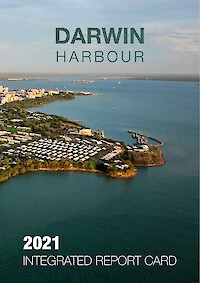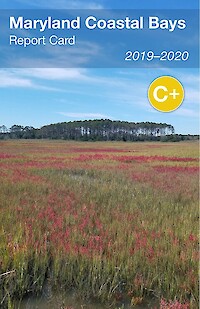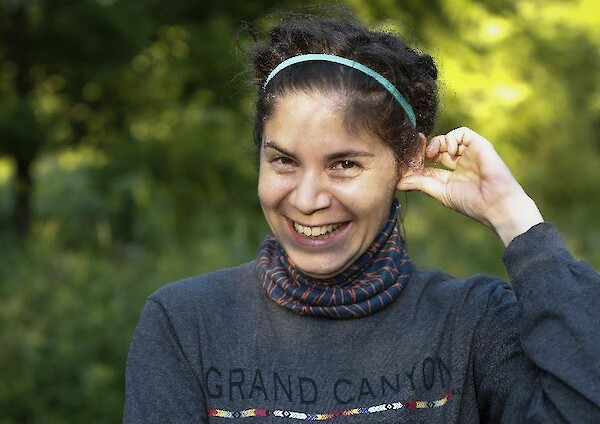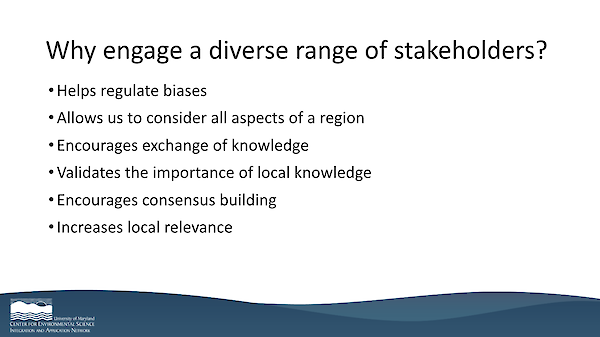New online course available

The next course in our partnership with the EdX online platform is now available! "The Science Advisory Toolbox for Environmental Management" has free registration, with an optional upgrade to receive a professional certificate at the end of the series.
There is a broad spectrum of ways that science can be incorporated into environmental management and policy and it all begins with effectively articulating cause and impacts. We will begin this course with a survey of early conservation thought-leaders that changed the conversation about how humans view their natural world. As our understanding of our natural world has grown in depth and complexity, so has the need for implementing new communication tools to best express this knowledge in a way that is accessible and actionable. Synthesis of data into a compelling story is the solution. You will develop your own toolbox of science advisory techniques while growing your environmental management knowledge base.
Taught by leading experts in the field with real world examples and studies, this course will show you how today’s conservation leaders can still “change the conversation” and guide society toward solutions for complex resiliency and sustainability problems that benefit all stakeholders and future generations.
Darwin Harbour Integrated Report Card now available

The Darwin Harbour Integrated Report Card was released on October 12. This report card has been developed through extensive consultation with stakeholders from the Darwin Harbour region and relies heavily on their knowledge and expertise.
Initiated by the Darwin Harbour Advisory Committee, a series of workshops were held in March 2020, representing the first step in this report card journey. Stakeholders from government, Indigenous communities, industry, academia and non-government organisations gathered in and around Darwin Harbour to conceptualise the harbour and its catchment, identify the environmental, social, Indigenous cultural and economic values of the region, and discuss indicators and thresholds that could be used to assess these values.
A total of 12 values were identified from these workshops and numerous potential indicators were proposed. The final choice of indicators used in this inaugural report card were ultimately dictated by data suitability and availability. In some instances, no data were available to confidently assess the health of certain values. In August 2021, report card findings were presented back to the stakeholders for their review and input.
Maryland Coastal Bays Report Card published

The MD Coastal Bays Report Card was released in Ocean City, MD on October 13, 2021. The aim of this report card is to provide a transparent, timely, and geographically detailed assessment of 2019–2020 Coastal Bays health. Coastal Bays health is defined as the progress of four water quality indicators (total nitrogen, total phosphorus, chlorophyll a, dissolved oxygen) and two biotic indicators (seagrass, hard clams) toward scientifically derived ecological thresholds or goals. The six indicators are combined into one overarching Coastal Bays Health Index, which is presented as the report card score. The overall score for the Coastal Bays was a C+ for the 2019-2020 reporting cycle. This was a decrease from the last full year of data in 2017.
Welcome, Lorena!

Lorena is the new Project Manager with IAN in Annapolis, Maryland. She got her degree in Biology from the National Autonomous University of Mexico (UNAM), her M.Sc. from the University of Edinburgh, and her Ph.D. in Botany and Plant Sciences from the University of California Riverside. In 2020 she was an AAAS Mass Media Fellow writing for the Indianapolis Star and has experience in public outreach and writing for outlets in the U.S. and Mexico. She was academic editor for Botany One, a blog about plant research run by the Annals of Botany Company. Lorena joins IAN’s team to help produce report cards for the Clinton, Detroit, Huron, River Raisin, and Rouge Rivers and will work with Dr. Andrew Elmore to coordinate the recently created research network known as Landscape Exchange Network for Socio-environmental systems (LENS). Lorena enjoys running, photographing plants and annotating them to share cool plant facts on social media.
We were at the Inclusive Scicomm Symposium

IAN science communicators Nathan Miller and Annie Carew presented at the Inclusive SciComm Symposium, hosted by the University of Rhode Island's Metcalf Institute. "Inclusive science communication, or inclusive scicomm, is a global movement to shift the traditional paradigm of science communication toward an approach that centers inclusion, equity, and intersectionality. Although a growing number of people are committing themselves to inclusive scicomm, this movement is in its early stages, and is evolving rapidly." (The Metcalf Institute)
Nathan and Annie gave a presentation focused on the importance of equity in stakeholder engagement, and showed participants how to use stakeholder mapping to ensure inclusive engagement. We at IAN believe strongly that every voice deserves to be heard, and effective environmental decisions cannot be made without representation from all members of a community.

